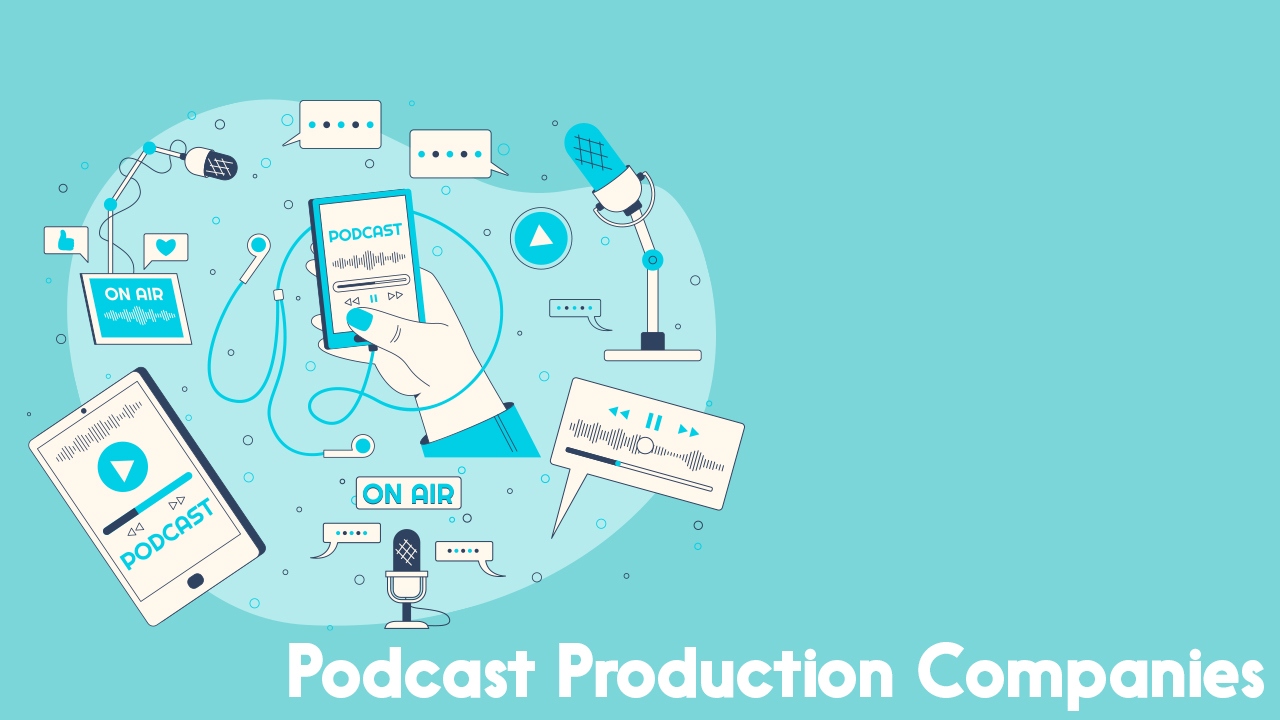How to Build an Audio Production Team for Your Podcast
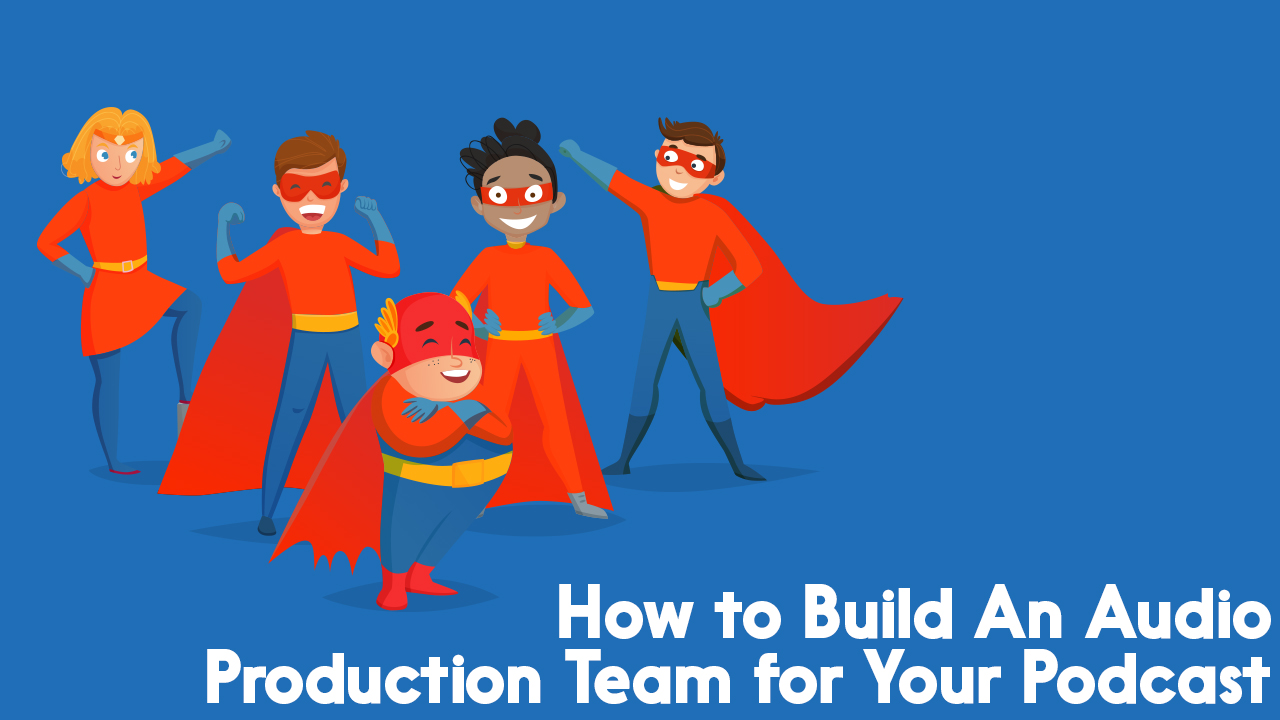
Many of us podcasters wear so many hats, that we look like the audio equivalent of the main character in the children’s book Caps For Sale. Independent Podcasters usually do the tasks of Producer, Script Writer, Audio Editor, Podcast Manager, Host and so many more. But what happens when your podcast expands and you don’t have to do it all? How do you put together an audio production team? In this post, we’re going to touch on 5 good human behavior tips to building a committed, valued, and focused team.
What’s an Audio Production Team Look Like?
Do you see any consistency in the audio production team roles listed in this chart?

Me neither; this initially drove me crazy. But then I realized that while standardization can be helpful with employment issues of workload, pay, etc, it’s not when forming an audio production team. The thing is that the creative individuals that will be on your team are multi-faceted people who often can do and often will want to do more than one task. And sometimes, admittedly, there are also budgetary constraints that might require them to do this as well. The creative process is messy. But that messiness is often a good thing.
So I sadly (but not sadly) can’t give you an exact picture of what your own audio production team will look like. What I can give you are 5 pieces of advice from podcasters from different stages of their audio production team journey.
What Best Practices Should You Use When Creating Your Audio Production Team?
1: Encourage Your Team to Work Quickly and Trust Their Instincts
Laura Davis of the Shelter in Place podcast runs more than just a podcast. She and her husband, Nate Davis, run the Kasana Collective, a podcast training program for female & non-binary audio storytellers. Many of the Collective members are beginner podcasters and are learning the basics as they go through the program.
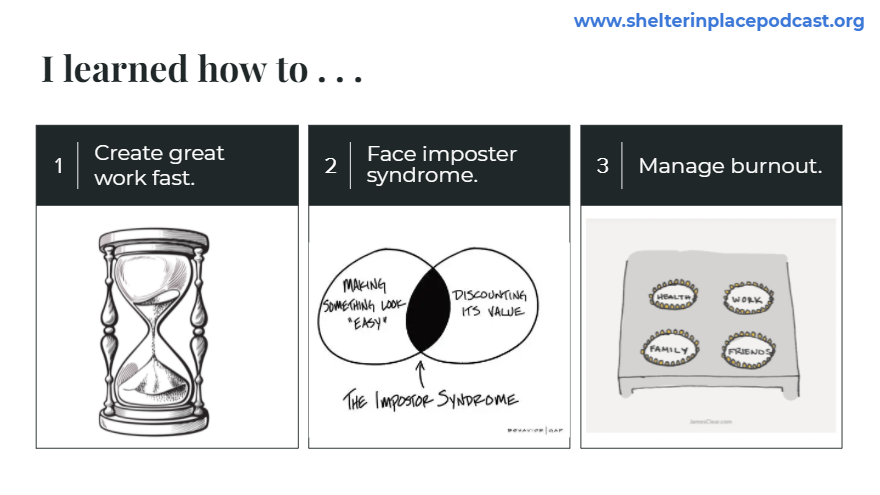
rewriting life through 100 daily episodes”
“Do it quick and do it well” is something that Laura teaches her trainees from the beginning. She doesn’t mean they should rush through their scripting, editing, or other tasks. Instead, she wants them to skip over the common imposter syndrome step. And, to trust their instincts from the beginning.
This combination of confidence and skill-boosting clearly works because many of their past Kasana Collective members have gone on to work in podcasting in rather impressive positions.
2: Create a Transparent and Easily Accessible Workflow
Sofija is the Lead Sound Designer at ZVUK, a production studio in Belgrade, Serbia. They offer a wide range of multimedia services such as podcasting, sound design, dialogue editing, etc. With all of these types of projects, how do you make sure that all team members are on the same page at the same time in the same project?
She stressed the importance of making the workflow transparent and easy to access at all times. “We use interchange formats and work with exported files since we don’t use the same DAWs. Sometimes we use AAF to export Descript sessions for Pro Tools at the beginning of the project since our client likes to do first-hand editing there.” This method works well for them but she wonders if things would be even smoother if they all used the same DAW.
3: Develop a Culture of Quality Over Speed
As technology gets faster, so does the pace of daily life. But in creative endeavors, does this have to be true also?
Mae runs the Bombay, India-based podcast production company Maed in India (Maed is pronounced “made”. Clever, right?) She strongly believes that “the quality of work is more important than the speed of execution.” This preference to detail over speed is seen even in their company artwork below.
The string instruments next to the ears are tanpuras (तम्पूरा); or tambura, tanpuri) and the drums under the tanpuras are tablas. Both of these instruments are Indian-specific. In fact, they had this company artwork designed by a local artist Yash Pradhan. This attention to detail is not only in their visual representation but very much so in their workflow ethics.

Specifically, the ears attached to both sets of stairs give us an indication not only that sound is important to this team but that communication is too. And Mae backs this up with her audio production team philosophy, “Find people who are either good learners and/or good teachers.” Slowing down, paying attention to details, and selecting patient (good learners/good teachers) team members are all aspects of what Mae thinks improves a project’s quality.
4: Enlist Team Members Who Are Passionate About the Project
So far we’ve focused on work ethics and habits. Pete from the Mission Rejected podcast encourages us to select audio production team members based on their passion for a project and each other. “We spend an awful lot of time on the phone just chatting about the show and working out plots and jokes. If you end up producing at a rapid pace your team can burn out pretty quickly if it doesn’t start from some spark of love that can be fanned.”
This team’s origin story was, as he describes it, “hatched” at the Austin Film Festival in 2018. Their team, The Porch Room, had worked together for years before that on different projects. Pete stressed not to look for someone who can fill technical or organizational roles. “Passion fuels the project and skills will follow,” is his message. You can see this passion, focus, and joy in Pete and Karen’s faces in this image, can’t you? Passion is not something you can learn, it must come from within and they have it in spades!
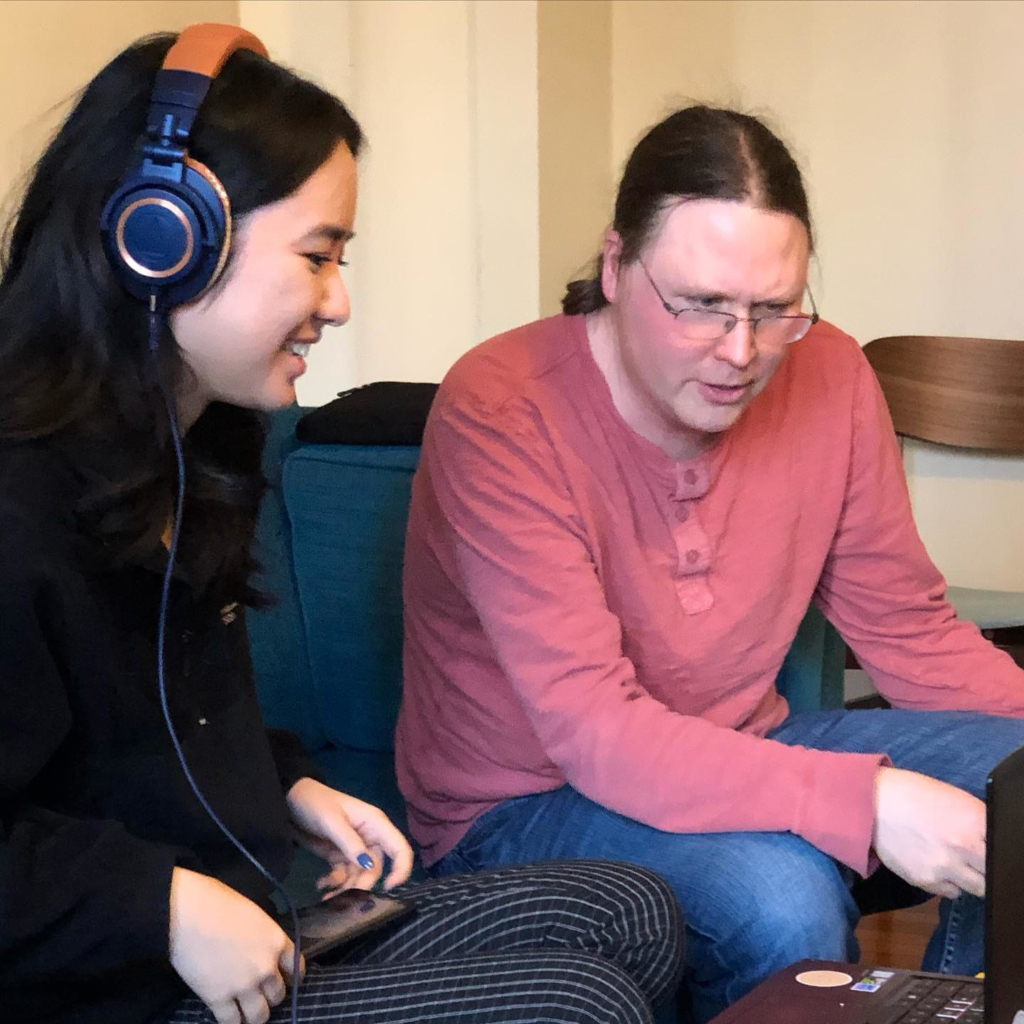
5: Value Diverse Experiences Over Technical Skills
What would you get if Democracy Now! and Hamilton had a podcast baby? Manny Faces thinks that his social justice podcast, News Beat, is the answer. (That’s his funny joke, not mine). News Beat episodes have a mix of interviews with supporting media clips and sometimes original Hip-Hop lyrics written and recorded specifically for the episode by an independent rap artist.
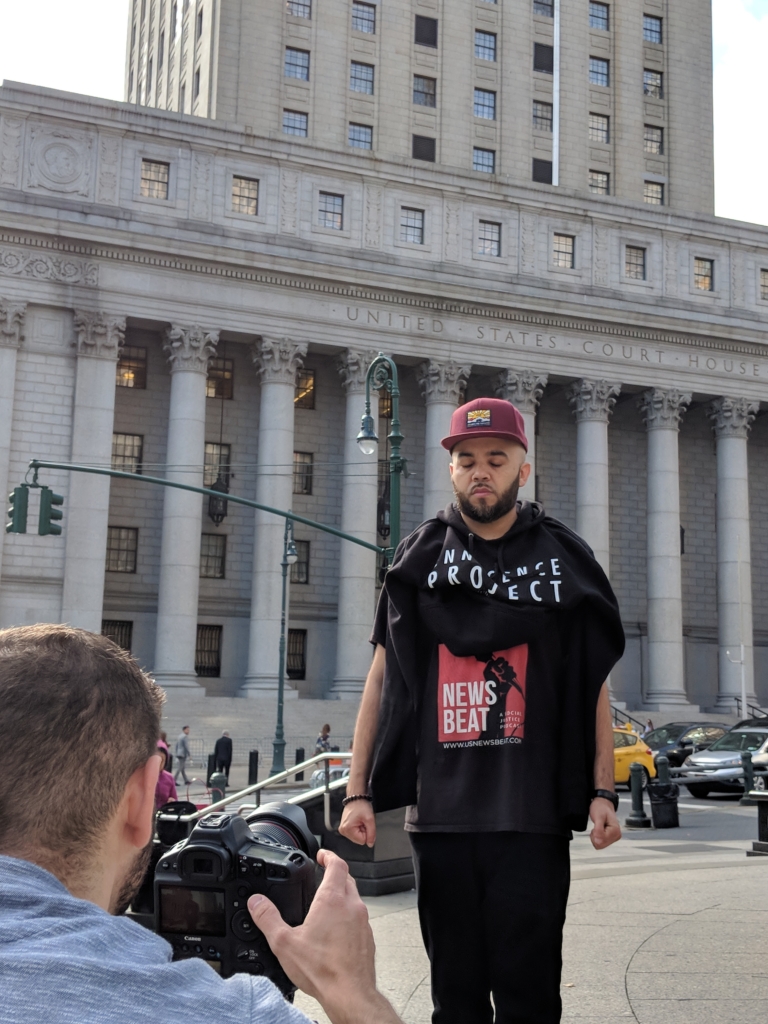
Creating an audio production team for such a unique and powerful podcast sounds like the focus might be on technical skills over all else. But quite the opposite is true. Manny, the producer, audio editor and host of the podcast, stressed that it’s most important to search for people with diverse experiences.
He broke this into two parts: diversity of abilities and diversity of thoughts, background, culture. He explained, “complementary skills with some overlap that allows for collaborative discourse, and an openness to deviate from ‘standard industry practice’ when it feels right.” This diversity makes them stronger in their skills and more open to telling stories from a different point of view than we often see in the media.
Follow This Advice but Don’t Follow This Advice
This makes podcast audio production, like most creative endeavors, a fluid experience. There isn’t one set way to do things. The backbone of these wonderful podcasting folks’ stories was the need to be flexible, both in thoughts and workflow. It’s not a matter of if things will change as the podcast progresses but how it’ll change.
“The strength of the tree lies in its ability to bend” ~Zen Wisdom
